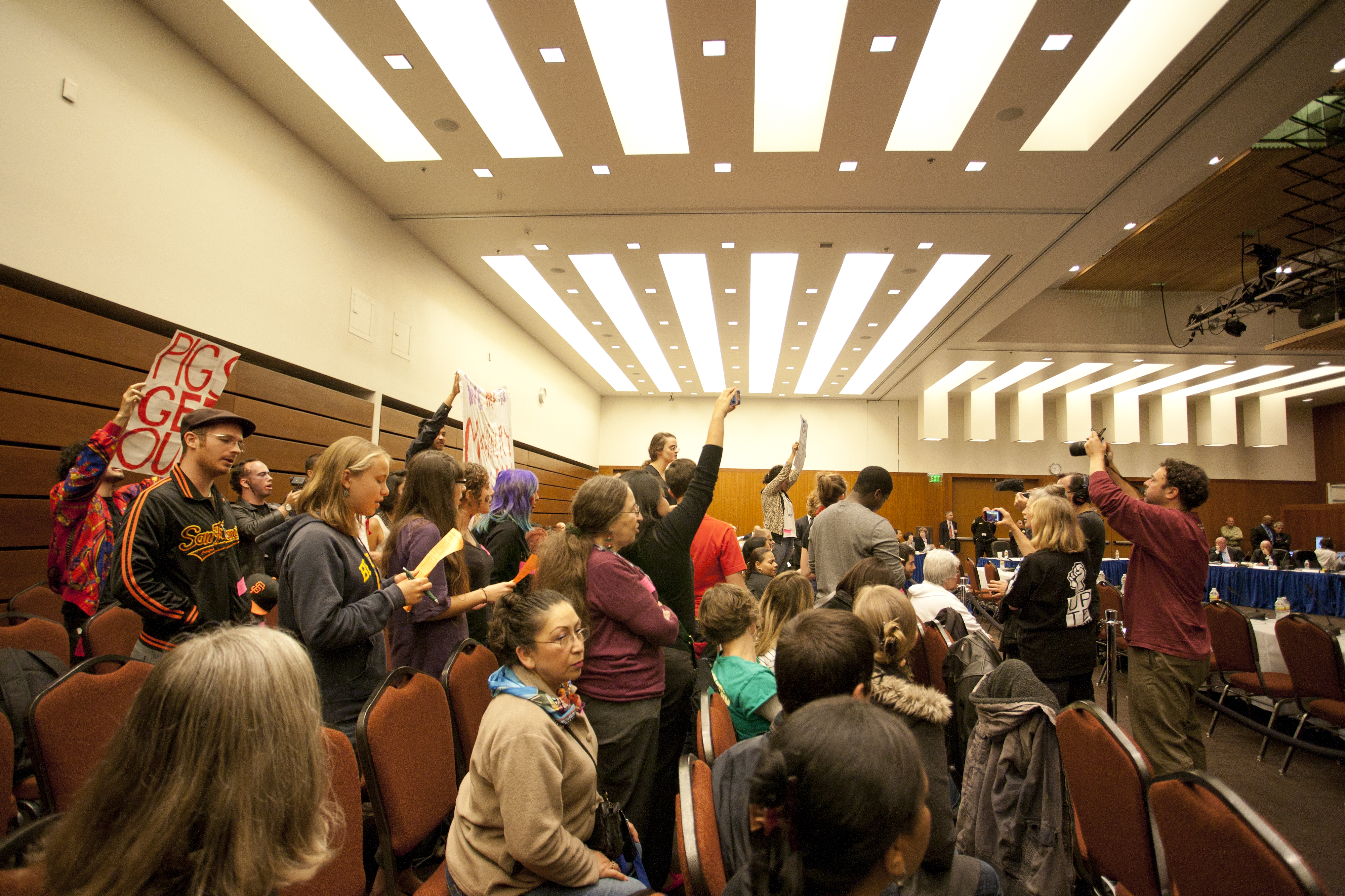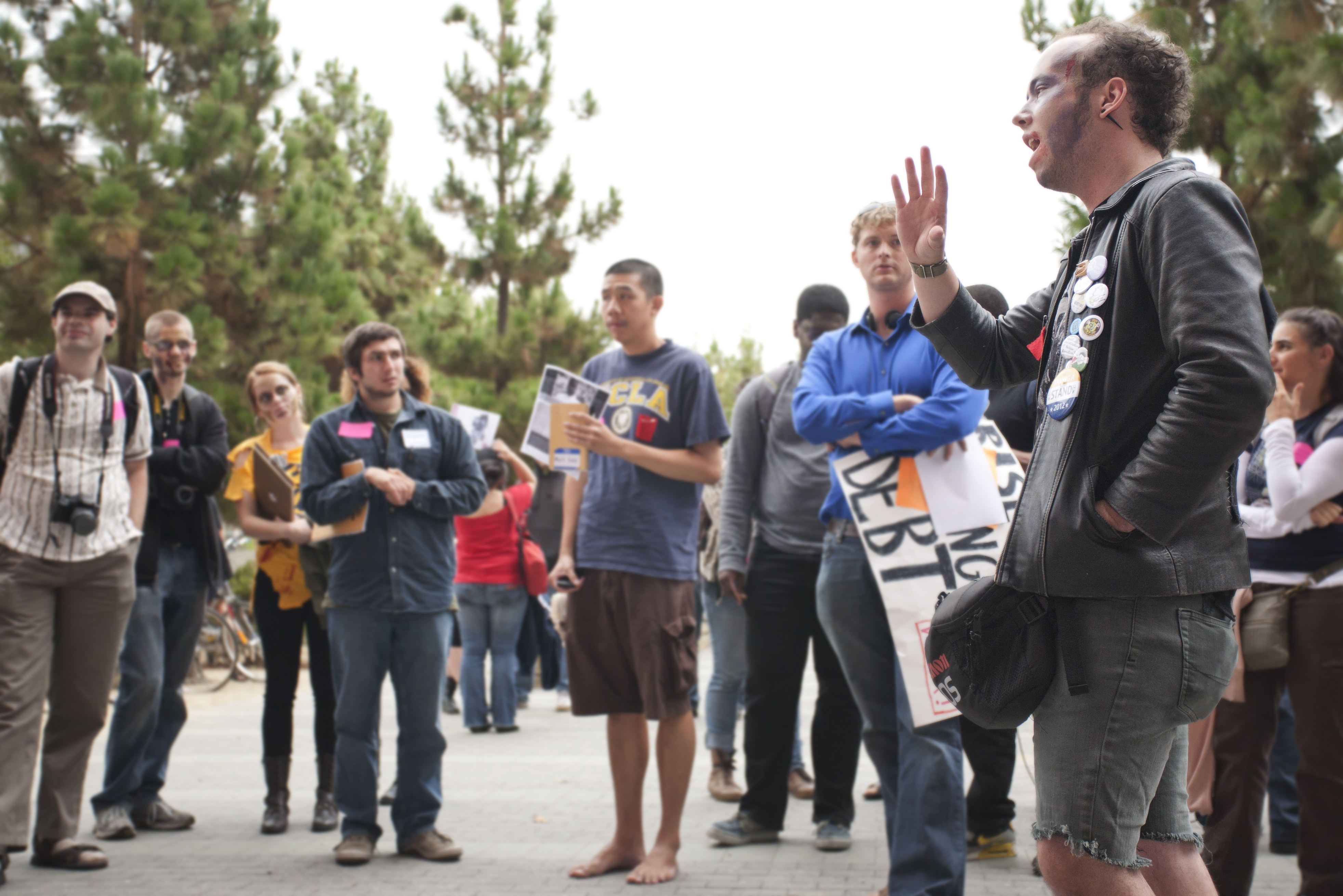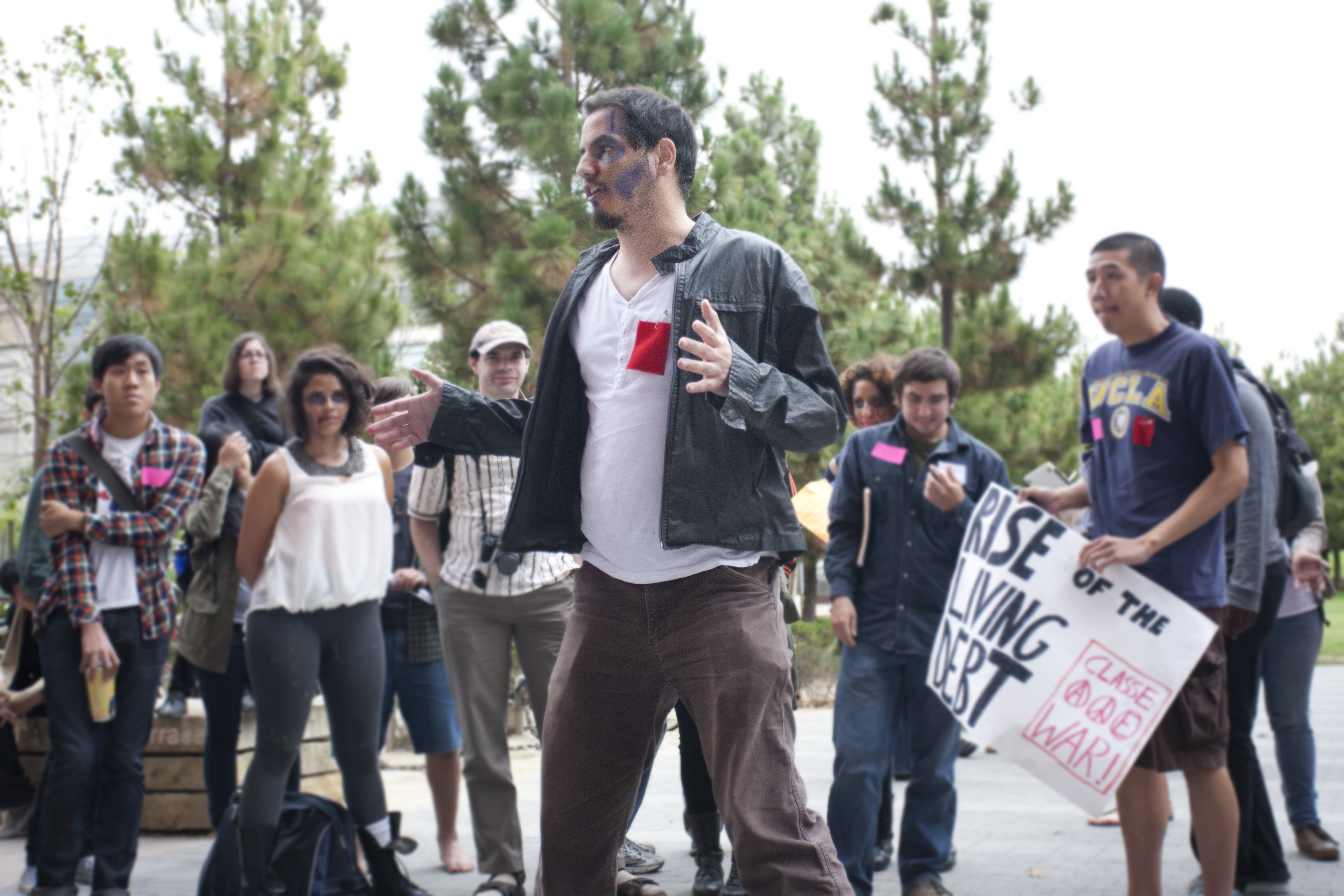

About 30 UC students and staff members – some dressed in zombie attire – briefly interrupted the bimonthly UC Board of Regents meeting this morning to protest tuition increases for professional schools, the possibility of a midyear tuition increase and what they called “privatization of the university.”
After expressing grievances during the meeting’s public comment period, students waved homemade signs, some chanting, “This is not a crisis of funding; this is a crisis of priority.”
UC San Francisco police issued a dispersal order after Regent Chair Sherry Lansing repeatedly asked the protesters to leave. The protesters complied, and no arrests were made.
Also during the public comment period, UC students and staff asked the regents to support Gov. Jerry Brown’s tax initiative on the ballot in November, which would increase sales tax by a quarter of a cent and raise income taxes on households that make more than $250,000 annually.
The goal was to give students more opportunities to have their voice heard during the public comment period, said Beezer de Martelly, an ethnomusicology graduate student at UC Berkeley.
“I do think we achieved (that goal),” de Martelly said.
The protesters advised the regents to abstain from voting on a double-digit midyear tuition increase in the event that voters turn down the proposed tax hike in November.
The regents were not scheduled to vote on a 20.3 percent tuition increase at their bimonthly meeting this week, said Steve Montiel, a UC spokesman.
The protesters advocated against a vote on tuition increases for UC professional schools scheduled for today. If the regents vote to approve the increase, fees for UCLA’s nursing school will increase by up to 35 percent.
Protests have become a regular part of board meetings, Montiel said.
“I hope to see that energy (from protesters) directed toward passing the governor’s tax initiative,” Montiel said.
He added that the regents decide on important issues based on the background information they receive in briefings – not based on the demands of those who protest at meetings.
Compiled by Suzy Strutner, Bruin reporter.
